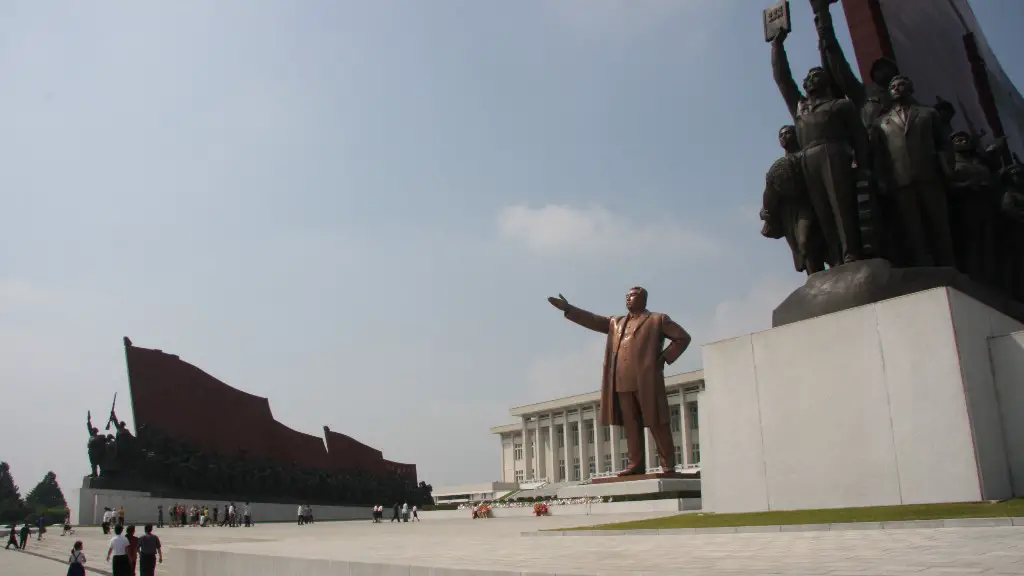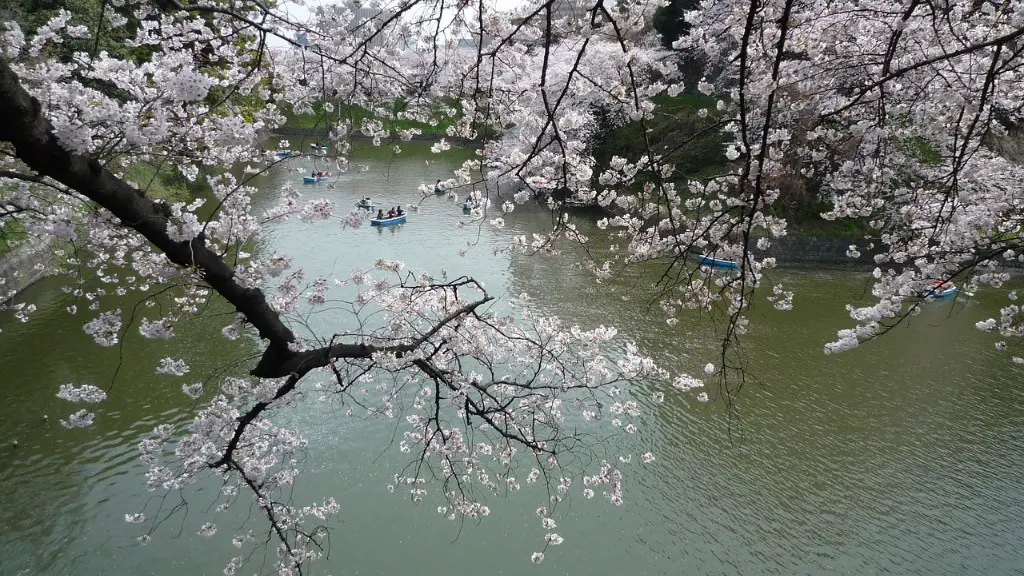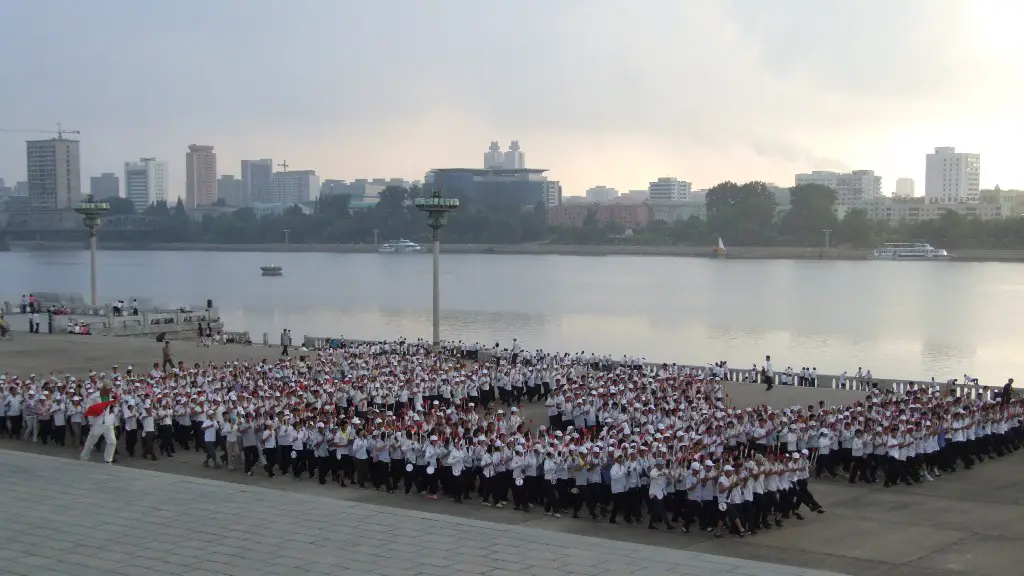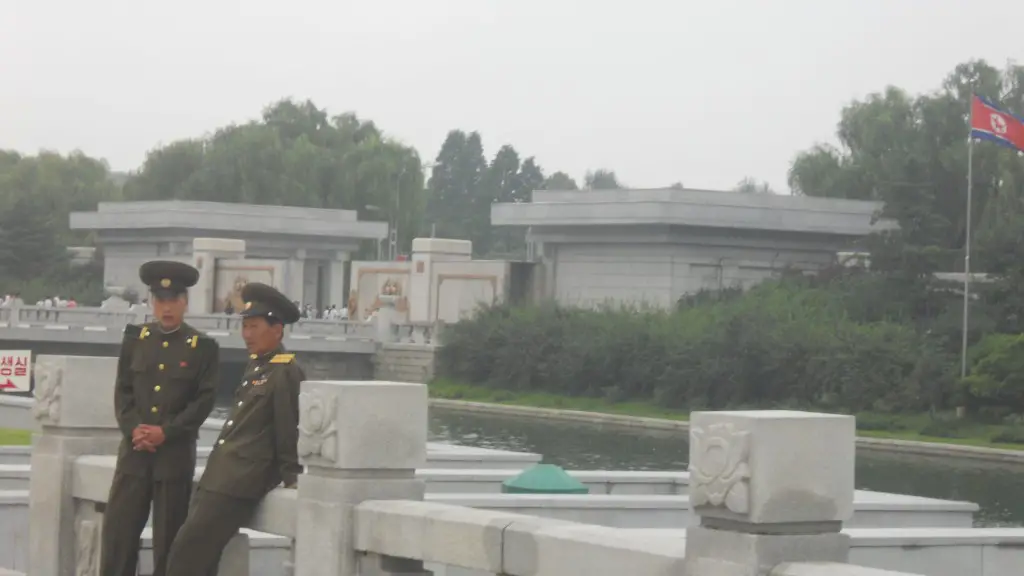Does North Korea Stand A Chance?
Since the creation of the Democratic People’s Republic of Korea (DPRK), the socialist nation has seen its fair share of tumultuous times. As its relations with the rest of the world produce increasingly hostile rhetoric, the nation’s future hangs in the balance. While other countries stand on the brink of nuclear armament, North Korea has adopted nuclear technology into its centerpiece program. The question that arises is: Does North Korea stand a chance against the powers of the world?
The international community and its allies have long been concerned with the increasing instability of the Korean peninsula. As the DPRK pushes towards nuclear armament, the world stands by in silent disapproval. While some argue that North Korea has a right to self-determination, other nations tremble in fear of an apocalypse. North Korea’s nuclear weapons capabilities are seen as a direct threat to international peace and security, and the future of the region is now in question.
Analysing the current geopolitics of North Korea and the wider world, it would seem that the answer to whether the nation stands a chance does not have an easy answer. From a military perspective, North Korea has the firepower, the capacity and the knowledge to compete. They are one of the few countries in possession of nuclear weapons, and the fact that they have refused to sign the Non-Proliferation Treaty, combined with their bellicose rhetoric, paints a worrying future. On the other hand, many experts argue that economic and technological sanctions can restrain a country’s capabilities, and in the long run, are the most successful tool in preventing nuclear war.
International pressure is also a powerful weapon. The United Nations Security Council is responsible for upholding international law, and its acts of effective diplomacy can do a great deal to destabilize or even collapse a regime. Even if North Korea maintains its status quo, if other world powers can hold out, then the DPRK’s chances will remain slim. The sanctions, embargoes and limitations are in place for a reason, and the world has proven its ability to enforce them.
The future of North Korea is unpredictable. The future of the world is uncertain, as countries must navigate the balance between might and morality. It is unclear whether North Korea has enough resources or diplomatic power to survive against the rest of the world. Isolationism is not the answer, and perhaps the true answer lies in the DPRK finding a way to peacefully co-exist with the rest of the world. As tensions rise and no country dares to blink first, the fate of North Korea hangs in the balance.
The Impact of Sanctions on North Korea
The impact of economic sanctions on North Korea has been a subject of debate for decades. Sanctions are a tool that can be used to slow down or eliminate a country’s nuclear program, and the U.S. and other nations have imposed numerous sanctions on the DPRK over the years to reduce its nuclear capabilities. Despite the failure of the United Nations Security Council (UNSC) to pass a resolution imposing such economic penalties in 2016, U.S. President Donald Trump followed through with his promise to increase sanctions in order to pressure Pyongyang. In 2018, the UNSC passed a resolution that further tightened restrictions on North Korea’s finances, and there are still more on the way.
There has been some speculation about the effectiveness of these sanctions, which many believe have had little to no effect on the North Korea’s military capabilities. This belief is partly rooted in the fact that the sanctions have not been fully implemented, but even more so because history suggests that economic sanctions have a limited impact on their targets. In fact, some evidence points to North Korea taking advantage of these sanctions to strengthen its economy and military capabilities. In any case, it is still too early to judge the long-term effectiveness of the latest rounds of UN and U.S. sanctions.
The impact of sanctions on North Korea is a complex issue because it goes beyond just economic and military considerations. There are human rights violations in North Korea that are greatly exacerbated by the sanctions, and there is a real risk that these punitive measures, no matter how well intentioned, could have disastrous repercussions for the North Korean people. That being said, the sanctions could also lead to a much-needed dialogue between North Korea and the rest of the world and pave the way for a peaceful resolution to the crisis.
Furthermore, the effectiveness of sanctions against North Korea is often cited as evidence of their effectiveness as a means of diplomacy. They can be used to signal displeasure and demonstrate resolve without having to resort to more aggressive measures. Still, it is possible that sanctions will not have the desired effect of convincing the North Korean leadership to abandon their nuclear ambitions and agree to international demands, and instead could become a barrier to negotiations.
The Risk of a Nuclear War
An escalating nuclear crisis coupled with rising tensions between North Korea and its adversaries has dramatically increased the risk of nuclear war. Although the North Korean government has declared its willingness to submerge into a peaceful dialogue with the United States and other Western powers, there has been little progress towards achieving this goal. Meanwhile, the U.S. and its allies continue to pursue their own strategies, including economic sanctions and military exercises around the Korean Peninsula. All of this has heightened the risk of a nuclear conflict which could prove devastating for mankind.
It is important to note that the potential for a nuclear war is not contained to the Korean Peninsula. No matter which state is directly involved in such a conflict, the destructive force of a nuclear war could cause a global humanitarian disaster. The long-term environmental, medical, and economic implications of this event would disrupt the lives of many innocent people. Not only would countless lives be lost, but the radioactive fallout could potentially threaten life worldwide.
If a nuclear war were to occur on the Korean Peninsula, the effects would be especially devastating due to the region’s proximity to other countries. For example, Japan and China, two of North Korea’s neighbors, would be at risk of significant radiation exposure given its close proximity. Additionally, due to the lack of infrastructure in the DPRK, a nuclear attack on North Korea could cause even more destruction than in other parts of the world.
The world needs to remain vigilant in order to prevent a nuclear war from occurring. The situation on the Korean Peninsula needs to be diffused peacefully, and the international community needs to pressure North Korea to cease its nuclear ambitions. The United Nations needs to lead the way in these efforts, and the world’s leaders must find a way to resolve the crisis without resorting to military force.
U.S-North Korea Summit and Negotiations
The U.S-North Korean Summit in 2018 marked the first time a sitting U.S. President met with a North Korean leader in person. This summit was a major breakthrough in relations between the two countries, but negotiations have been slow and difficult ever since. While both sides have expressed commitment to denuclearization, they remain deadlocked in a stalemate over the specifics of denuclearization and the role of U.S.-South Korean military exercises.
The U.S. wants North Korea to take clear and verifiable steps towards denuclearization, such as providing a full nuclear weapons inventory and allowing for international inspectors. North Korea, on the other hand, wants the U.S. to make concessions off the bat, such as lifting economic sanctions and allowing North Korea to continue its nuclear deterrence programs. With the two sides so far apart in their positions, it is hard to imagine a successful outcome for the current negotiations.
In addition, the relationship between North Korea and the U.S. is fraught with mistrust and suspicion. The Trump administration has accused North Korea of breaking its promise to denuclearize and has threatened to impose more sanctions if North Korea does not comply. North Korea has accused the U.S. of acting in bad faith and of trying to abandon the agreement. This mutual skepticism has made it all the more difficult to bridge the gap between the two negotiating sides.
It is unclear, then, whether the two sides will be able to bridge the gap and reach a satisfactory resolution to the current issue. The U.S.-North Korean Summit was an unprecedented breakthrough in diplomatic relations between the two countries, but it remains to be seen whether this will be enough to move negotiations forward and bring peace to the Korean Peninsula.
The Role of China in North Korea Negotiations
China is North Korea’s largest trading partner and the two countries share a long history of cooperation. China’s relationship with North Korea has been strained in recent years due to the nuclear crisis, but it remains a key player in the negotiations. Beijing has actively sought to mediate talks between the U.S. and North Korea and has encouraged both sides to take a diplomatic approach and find a way to de-escalate tensions.
Chinese diplomats have lauded the Singapore Summit, during which President Trump and North Korean leader Kim Jong-un agreed to work towards the denuclearization of the Korean Peninsula. China’s leadership has pledged to provide North Korea with economic support and humanitarian aid, and to pressure North Korea to comply with the UN resolutions on denuclearization. Beijing has also been a key advocate for dialogue and for the gradual approach to denuclearization that both North Korea and the U.S. have proposed.
Despite the positive rhetoric from China, many commentators have expressed their skepticism towards Chinese policy towards North Korea. There are concerns that China is not doing enough to pressure North Korea to fully comply with the sanctions imposed by the UN, and critics argue that Beijing has been more interested in placating North Korea than in helping to resolve the nuclear crisis. Nonetheless, China remains an indispensable partner in negotiations, and it will be essential to any attempt to resolve the ongoing conflict.
The Human Rights Crisis in North Korea
Even as the international community worries about the nuclear crisis, the human rights atrocities in North Korea persist. Reports suggest that abuses ranging from torture to execution are rampant in the country, and the government has been accused of curtailing the rights of its citizens. Women’s rights are severely restricted, freedom of speech and press are virtually non-existent, and political opponents are often punished. The UN Commission of Inquiry has documented a wide range of violations of international human rights law and called for accountability.
Human rights activists have also criticized international powers for their stance on North Korea, accusing them of prioritizing negotiations over the welfare of the North Korean people. North Korea is one of the most isolated countries in the world and the world has largely been unwilling to put pressure on the regime to improve its human rights record. This is especially true of China, which accounts for the bulk of North Korea’s trade and which has been reluctant to condemn human rights violations in the country.
The human rights crisis in North Korea is a major reason why the U.S. and other Western powers have increased economic sanctions on the regime. They argue that these sanctions will force the regime to make changes and appease the international community, but the success of this approach is still dubious. Some argue that sanctions should not take precedence over addressing the human rights situation in North Korea, and that the international community should also increase pressure on the regime to respect human rights.
Human rights activists have also warned that the nuclear crisis could lead to





